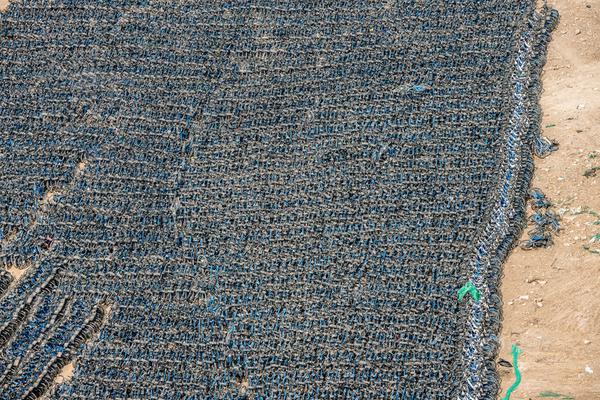
1. The five functions of the operating system are processor management, memory management, device management, file management and job management. Processor management The most basic function of processor management is to process interrupt events. After configuring the operating system, various events can be processed.
2. The main function of the computer operating system is process management, and its work is mainly process scheduling. In the case of a single user and a single taskNext, the processor is only monopolized by one user's task, and the process management work is very simple.
3. Operating System (abbreviation: OS) is a group of interrelated system software programs that supervise and control computer operation, use and run hardware, software resources and provide public services to organize user interaction.
4. Five major management functions of the operating system: (1) Job management: including tasks, interface management, human-computer interaction, graphical interface, voice control and virtual reality, etc. ( 2) File management: also known as information management. ( 3) Storage management: The essence is the management of storage "space", which mainly refers to the management of the main memory.
Any information system has five basic functions, namely: information collection and recording (input); information storage; information processing; information transmission; information output .
According to the functional introduction of the information system, the information system has five basic functions: input, storage, processing, output and control. Different functions have different functions, such as input function: the input function of the information system is determined by the purpose to be achieved by the system, the ability of the system and the permission of the information environment.
Five basic functions of the information system: input, storage, processing, output and control. Input function: The input function of the information system is determined by the purpose to be achieved by the system, the ability of the system and the permission of the information environment.Storage function: Storage function refers to the ability of the system to store various information and data. Mainly including: statistical functions.
The operating system has five functions: processor management: mainly controls and manages the work of the CPU. Storage management: mainly allocate and manage memory. Device management: mainly manage basic input and output devices. File management: responsible for the organization, storage, operation and protection of computer files.
The functions of the computer operating system include: processor management, memory management, device management, file management, job management and other functional modules. Processor management. The most basic function of processor management is to handle interrupt events. The processor can only detect interrupt events and generate interrupts and cannot process them.
The main function of the computer operating system is process management, and its main work is process scheduling. In the case of a single user and a single task, the processor is only monopolized by one user's task, and the work of process management is very simple.
The main functions of the operating system are process and processor management, job management, storage management, device management and file management, as follows: process and processor management. Because the execution of the program must rely on the processor, only one program flow can be processed and executed at any time. Homework management.
I) Processor management The most basic function of processor management is to handle interrupt events. The processor can only detect interrupt events and generate interrupts, and cannot handle these interrupt events. After configuring the operating system, all types of events can be handled.Another function of processor management is processor scheduling.
Five management functions of the operating system: job management: including tasks, interface management, human-computer interaction, graphical interface, voice control and virtual reality, etc. File management: also known as information management. Storage management: The essence is the management of storage "space", which mainly refers to the management of the main memory.

The storage management function of the operating system is to manage memory resources. It mainly realizes memory allocation and recovery, storage protection and memory expansion. The device management of the device management operating system is responsible for allocating and recycling external devices, and controlling external devices to operate according to the requirements of user programs.
The functions of the computer operating system include: processor management, memory management, device management, file management, job management and other functional modules. Processor management. The most basic function of processor management is to handle interrupt events. The processor can only detect interrupt events and generate interrupts and cannot process them.
The five functions of the operating system are processor management, memory management, device management, file management and job management.Processor management The most basic function of processor management is to process interrupt events. After configuring the operating system, various events can be processed.
UEFA TV-APP, download it now, new users will receive a novice gift pack.
1. The five functions of the operating system are processor management, memory management, device management, file management and job management. Processor management The most basic function of processor management is to process interrupt events. After configuring the operating system, various events can be processed.
2. The main function of the computer operating system is process management, and its work is mainly process scheduling. In the case of a single user and a single taskNext, the processor is only monopolized by one user's task, and the process management work is very simple.
3. Operating System (abbreviation: OS) is a group of interrelated system software programs that supervise and control computer operation, use and run hardware, software resources and provide public services to organize user interaction.
4. Five major management functions of the operating system: (1) Job management: including tasks, interface management, human-computer interaction, graphical interface, voice control and virtual reality, etc. ( 2) File management: also known as information management. ( 3) Storage management: The essence is the management of storage "space", which mainly refers to the management of the main memory.
Any information system has five basic functions, namely: information collection and recording (input); information storage; information processing; information transmission; information output .
According to the functional introduction of the information system, the information system has five basic functions: input, storage, processing, output and control. Different functions have different functions, such as input function: the input function of the information system is determined by the purpose to be achieved by the system, the ability of the system and the permission of the information environment.
Five basic functions of the information system: input, storage, processing, output and control. Input function: The input function of the information system is determined by the purpose to be achieved by the system, the ability of the system and the permission of the information environment.Storage function: Storage function refers to the ability of the system to store various information and data. Mainly including: statistical functions.
The operating system has five functions: processor management: mainly controls and manages the work of the CPU. Storage management: mainly allocate and manage memory. Device management: mainly manage basic input and output devices. File management: responsible for the organization, storage, operation and protection of computer files.
The functions of the computer operating system include: processor management, memory management, device management, file management, job management and other functional modules. Processor management. The most basic function of processor management is to handle interrupt events. The processor can only detect interrupt events and generate interrupts and cannot process them.
The main function of the computer operating system is process management, and its main work is process scheduling. In the case of a single user and a single task, the processor is only monopolized by one user's task, and the work of process management is very simple.
The main functions of the operating system are process and processor management, job management, storage management, device management and file management, as follows: process and processor management. Because the execution of the program must rely on the processor, only one program flow can be processed and executed at any time. Homework management.
I) Processor management The most basic function of processor management is to handle interrupt events. The processor can only detect interrupt events and generate interrupts, and cannot handle these interrupt events. After configuring the operating system, all types of events can be handled.Another function of processor management is processor scheduling.
Five management functions of the operating system: job management: including tasks, interface management, human-computer interaction, graphical interface, voice control and virtual reality, etc. File management: also known as information management. Storage management: The essence is the management of storage "space", which mainly refers to the management of the main memory.

The storage management function of the operating system is to manage memory resources. It mainly realizes memory allocation and recovery, storage protection and memory expansion. The device management of the device management operating system is responsible for allocating and recycling external devices, and controlling external devices to operate according to the requirements of user programs.
The functions of the computer operating system include: processor management, memory management, device management, file management, job management and other functional modules. Processor management. The most basic function of processor management is to handle interrupt events. The processor can only detect interrupt events and generate interrupts and cannot process them.
The five functions of the operating system are processor management, memory management, device management, file management and job management.Processor management The most basic function of processor management is to process interrupt events. After configuring the operating system, various events can be processed.
Hearthstone Arena class tier list 2024
author: 2025-01-09 05:48UEFA Champions League standings
author: 2025-01-09 04:42Hearthstone arena deck Builder
author: 2025-01-09 03:40 UEFA European championship
UEFA European championship
545.53MB
Check European Cup live
European Cup live
159.83MB
Check Casino Plus
Casino Plus
569.97MB
Check Hearthstone Arena win rate
Hearthstone Arena win rate
743.12MB
Check Free sports events uefa champions league app android
Free sports events uefa champions league app android
635.38MB
Check casino plus free 100
casino plus free 100
998.54MB
Check DigiPlus
DigiPlus
532.54MB
Check Casino free 100 no deposit
Casino free 100 no deposit
528.85MB
Check Casino redeem
Casino redeem
797.18MB
Check Champions League
Champions League
597.83MB
Check UEFA Champions League standings
UEFA Champions League standings
162.71MB
Check Hearthstone arena class win rates reddit
Hearthstone arena class win rates reddit
617.74MB
Check DigiPlus stock
DigiPlus stock
778.88MB
Check UEFA Champions League standings
UEFA Champions League standings
135.49MB
Check Bingo Plus stock
Bingo Plus stock
444.55MB
Check UEFA Europa League
UEFA Europa League
171.45MB
Check UEFA Europa League
UEFA Europa League
669.71MB
Check Hearthstone Wild Decks
Hearthstone Wild Decks
423.63MB
Check LR stock price Philippines
LR stock price Philippines
374.26MB
Check Hearthstone Arena win rate
Hearthstone Arena win rate
228.91MB
Check Arena Plus login
Arena Plus login
473.37MB
Check Arena Plus login
Arena Plus login
175.36MB
Check Bingo Plus
Bingo Plus
331.39MB
Check DigiPlus
DigiPlus
544.52MB
Check Hearthstone Arena Tier List
Hearthstone Arena Tier List
795.67MB
Check UEFA live free
UEFA live free
193.77MB
Check Arena Plus login
Arena Plus login
492.74MB
Check Europa League app
Europa League app
922.58MB
Check European Cup live
European Cup live
828.98MB
Check UEFA Champions League standings
UEFA Champions League standings
446.39MB
Check Hearthstone Arena win rate
Hearthstone Arena win rate
527.67MB
Check Casino Plus login register
Casino Plus login register
765.32MB
Check Hearthstone Wild Decks
Hearthstone Wild Decks
222.49MB
Check DigiPlus stock
DigiPlus stock
915.98MB
Check Hearthstone Arena class tier list 2024
Hearthstone Arena class tier list 2024
525.45MB
Check Casino Plus login register
Casino Plus login register
114.29MB
Check
Scan to install
UEFA TV to discover more
Netizen comments More
1168 100 free bonus casino no deposit GCash
2025-01-09 05:53 recommend
2004 UEFA EURO
2025-01-09 05:43 recommend
2623 UEFA Champions League standings
2025-01-09 05:27 recommend
684 UEFA Champions League standings
2025-01-09 04:35 recommend
1148 Hearthstone arena deck Builder
2025-01-09 04:30 recommend